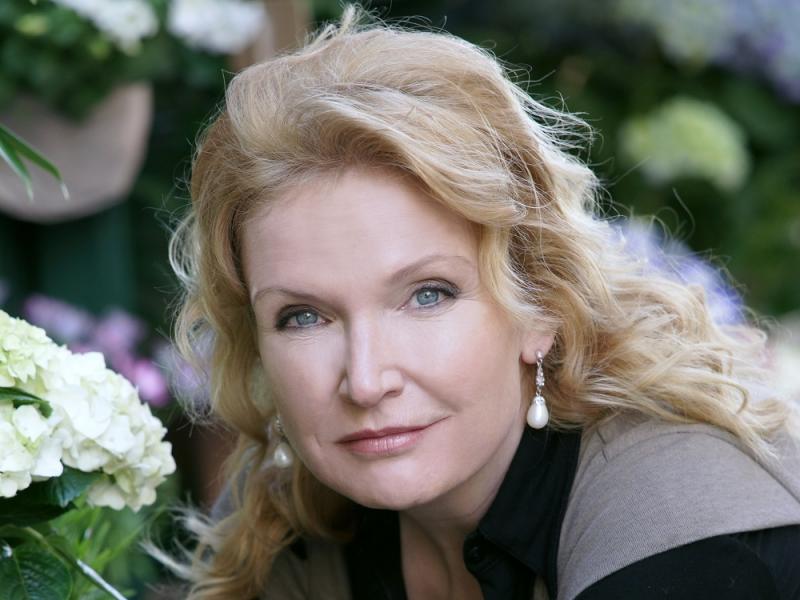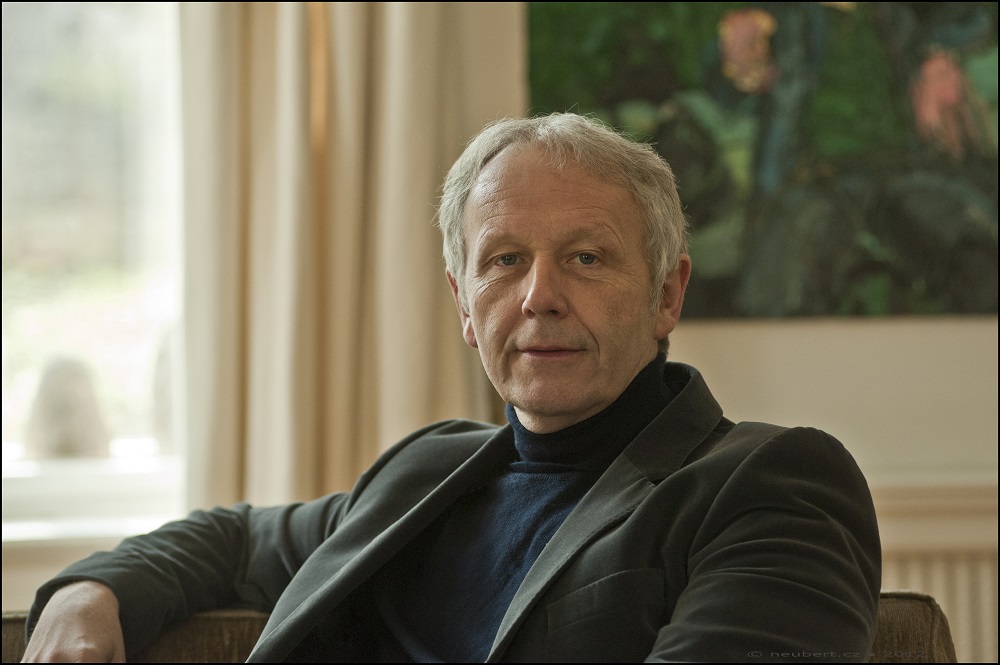Anne Schwanewilms, Charles Spencer, Wigmore Hall review - going deep in Schubert | reviews, news & interviews
Anne Schwanewilms, Charles Spencer, Wigmore Hall review - going deep in Schubert
Anne Schwanewilms, Charles Spencer, Wigmore Hall review - going deep in Schubert
The great soprano and her regular pianist give a masterclass in Lieder

They say that Wigmore Hall audiences know their Lieder singers, but last night's far from packed house dispelled that illusion; the hall has been full for much lesser artists than German soprano Anne Schwanewilms. No matter; she gave her usual masterclass, ineffably poised between tone-colour, phrasing and word-pointing.
The wrappings weren't pure fluff, either. Franz Schreker's early Op. 3 songs give no indication of the adventurer to come, but he lends a bittersweet twist to reflections on a past love by Paul Heyse. There was a subtle ambivalence here, plus the sense of transience that belongs to Schwanewilms' greatest character-study as the Marschallin in Der Rosenkavalier. The set began with a few flat notes as the voice got into gear, but by the end of the second and third songs the high-flying rapture and generous tone we associate with the soprano's Strauss came to the fore. Few Lieder-singers address the audience so directly, the physical stillness relieved by the most elegantly expressive hand gestures in "Das Glück” (“Joy”) and a dash of the comedy Schwanewilms does so well in "Umsonst" (“In vain”).
Rarely can Schubert’s three "songs of Ellen" adapted from Walter Scott have cast a stranger or more hypnotic spell. Schwanewilms kept the direct soldier-worship of No. 1 inward, only to retreat into even more secret raptures in stanzas about harp-led lullabies and dawn choruses. Spencer (pictured below by Jan Neubert), whose amplitude gives her breath-control full rein without ever dragging, had the intermezzo-like lion's share of the central hunting song; then the famous "Ave Maria" was an exercise in poise and legato. Amazing how Schwanewilms can fleck a single note with gold in mid-flight. Whatever happened to "Das Mädchen", the first of the advertised Schubert songs after the interval, I don't know; but by starting with "Die Junge Nonne" (“The Young Nun”), Schwanewilms and Spencer provided perfect symmetry in the opposite side of the coin to "Ave Maria" – through anguish and turbulence to two simply affirmative "Hallelujahs". The ghost voice from the grave of "Schwestergruss" (“Sister’s Greeting”) was surpassed only by death beckoning to the maiden in one of Schubert's most epigrammatic utterances; those haunting repeated notes, the lower register which reminds us that the singer started out as a mezzo. Time truly froze here.
Whatever happened to "Das Mädchen", the first of the advertised Schubert songs after the interval, I don't know; but by starting with "Die Junge Nonne" (“The Young Nun”), Schwanewilms and Spencer provided perfect symmetry in the opposite side of the coin to "Ave Maria" – through anguish and turbulence to two simply affirmative "Hallelujahs". The ghost voice from the grave of "Schwestergruss" (“Sister’s Greeting”) was surpassed only by death beckoning to the maiden in one of Schubert's most epigrammatic utterances; those haunting repeated notes, the lower register which reminds us that the singer started out as a mezzo. Time truly froze here.
If we thought we were out of the valley of death with Spencer's sparkling water-music in the first of Liszt's songs from Schiller's William Tell, the relief was short-lived; from the depths of the lake comes another spectral voice to summon the fisher-boy to his death. Liszt sounded at his deepest, too, in the central shepherd's farewell to the summer pastures, Schwanewilms excelling at ambiguity as usual.
The human sentiments, sentimentality even, of three Korngold Lieder from 1928-29 were the perfect rich dessert, the first, “Was Du mir bist?” (“What are you to me?”) as much of a qualifier for one of the most heart-piercing lovesongs in the repertoire as the best of Mahler or Strauss. Such soaring here; and if the Strauss encore, the quirky "Ach, was Kummer, Qual und Schmerzen" ("Ah, the grief, the torment, the pain"), needed a German audience to understand the text in order to properly interpret the delightful boss-eyed grimacing. we had all the opulence we needed in Korngold’s “Welt ist stille eingeschlafen” (“The world has gone to sleep”), the official end to an unusually shapely and enriching recital. More Schubert next time, please: I haven’t heard as sheerly beautiful a sound in his Lieder at the Wigmore since Gundula Janowitz and Margaret Price, and certainly no more probing interpreter.
rating
Explore topics
Share this article
The future of Arts Journalism
You can stop theartsdesk.com closing!
We urgently need financing to survive. Our fundraising drive has thus far raised £49,000 but we need to reach £100,000 or we will be forced to close. Please contribute here: https://gofund.me/c3f6033d
And if you can forward this information to anyone who might assist, we’d be grateful.

Subscribe to theartsdesk.com
Thank you for continuing to read our work on theartsdesk.com. For unlimited access to every article in its entirety, including our archive of more than 15,000 pieces, we're asking for £5 per month or £40 per year. We feel it's a very good deal, and hope you do too.
To take a subscription now simply click here.
And if you're looking for that extra gift for a friend or family member, why not treat them to a theartsdesk.com gift subscription?
more Classical music
 theartsdesk at the Three Choirs Festival - Passion in the Cathedral
Cantatas new and old, slate quarries to Calvary
theartsdesk at the Three Choirs Festival - Passion in the Cathedral
Cantatas new and old, slate quarries to Calvary
 BBC Proms: Estonian Philharmonic Chamber Choir, Kaljuste review - Arvo Pärt 90th birthday tribute
Stillness and contemplation characterise this well sung late-nighter
BBC Proms: Estonian Philharmonic Chamber Choir, Kaljuste review - Arvo Pärt 90th birthday tribute
Stillness and contemplation characterise this well sung late-nighter
 BBC Proms: Kholodenko, BBCNOW, Otaka review - exhilarating Lutosławski, underwhelming Rachmaninov
Polish composers to the fore in veteran conductor’s farewell
BBC Proms: Kholodenko, BBCNOW, Otaka review - exhilarating Lutosławski, underwhelming Rachmaninov
Polish composers to the fore in veteran conductor’s farewell
 theartsdesk at the Pärnu Music Festival 2025 - Arvo Pärt at 90 flanked by lightness and warmth
Paavo Järvi’s Estonian Festival Orchestra still casts its familiar spell
theartsdesk at the Pärnu Music Festival 2025 - Arvo Pärt at 90 flanked by lightness and warmth
Paavo Järvi’s Estonian Festival Orchestra still casts its familiar spell
 BBC Proms: Batsashvili, BBC Scottish Symphony Orchestra, Ryan Wigglesworth review - grief and glory
Subdued Mozart yields to blazing Bruckner
BBC Proms: Batsashvili, BBC Scottish Symphony Orchestra, Ryan Wigglesworth review - grief and glory
Subdued Mozart yields to blazing Bruckner
 Classical CDs: Hens, Hamburg and handmaids
An unsung French conductor boxed up, plus Argentinian string quartets and baroque keyboard music
Classical CDs: Hens, Hamburg and handmaids
An unsung French conductor boxed up, plus Argentinian string quartets and baroque keyboard music
 BBC Proms: McCarthy, Bournemouth SO, Wigglesworth review - spring-heeled variety
A Ravel concerto and a Walton symphony with depth but huge entertainment value
BBC Proms: McCarthy, Bournemouth SO, Wigglesworth review - spring-heeled variety
A Ravel concerto and a Walton symphony with depth but huge entertainment value
 BBC Proms: First Night, Batiashvili, BBCSO, Oramo review - glorious Vaughan Williams
Spirited festival opener is crowned with little-heard choral epic
BBC Proms: First Night, Batiashvili, BBCSO, Oramo review - glorious Vaughan Williams
Spirited festival opener is crowned with little-heard choral epic
 Interview: Quinteto Astor Piazzolla on playing in London and why Mick Jagger's a fan
Music Director Julián Vat and pianist Matias Feigin compare notes on Piazzolla
Interview: Quinteto Astor Piazzolla on playing in London and why Mick Jagger's a fan
Music Director Julián Vat and pianist Matias Feigin compare notes on Piazzolla
 Classical CDs: Bells, birdsong and braggadocio
British contemporary music, percussive piano concertos and a talented baritone sings Mozart
Classical CDs: Bells, birdsong and braggadocio
British contemporary music, percussive piano concertos and a talented baritone sings Mozart
 Siglo de Oro, Wigmore Hall review - electronic Lamentations and Trojan tragedy
Committed and intense performance of a newly-commissioned oratorio
Siglo de Oro, Wigmore Hall review - electronic Lamentations and Trojan tragedy
Committed and intense performance of a newly-commissioned oratorio

Add comment